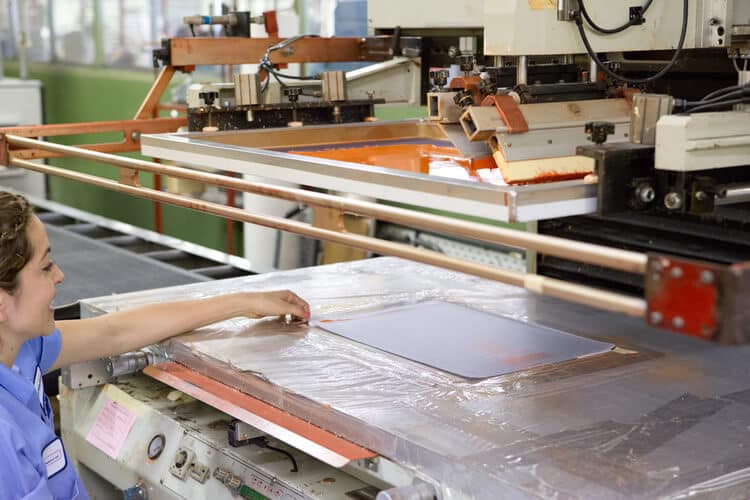What is Vinyl Welding?

Heat sealing and welding are often used interchangeably when people talk about industrial sewing. Although there are multiple methods of joining fabrics like vinyl together, the end result of vinyl welding is the same: a waterproof and airtight hermetic seal.
How Does RF Vinyl Welding Work?
Though it’s been around since at least the 1970s, RF welding still impresses people outside the industry with its futuristic connotations. It doesn’t seem possible to permanently fuse two materials together using the very same radio waves we use to communicate wirelessly over long distances.
RF welding passes a high-energy electromagnetic field through the two plastic sheets. The materials are designed to be “thermoplastic,” or to react in a specific way when subjected to the high frequencies required. Radio frequencies excite the molecules in both materials causing them to vibrate and, when pressed together, bond with each other at the molecular level.
Start a Project Request A Quote
Is Heat Sealing a Type of Vinyl Welding?
Although RF welding specifically does not use high temperatures, some kinds of heat welding vinyl are accurately classified as heat sealing. Heat sealing is an approach for permanently joining materials to each other by forming a mechanical bond. The process creates a very strong physical connection between the two materials.
One major benefit of heat sealing is that it provides a complete barrier against both air and moisture, much like an RF seal does. Since heat sealing can be achieved using mechanical, chemical, or thermal methods, it can be used in a variety of applications. Examples of popular products that are heat-sealed and use heat-welding vinyl include denim, PVC garments, polyester fiber, and many others.
What is Heat Welding Vinyl Used For?
Like most industrial sewing applications, RF sealing is broadly applicable to many scenarios unique to the use of heavy duty fabrics in manufacturing. When an impenetrable bond is needed in order to unite two flexible materials, other methods of joining them can be less than ideal.
A stitch, for example, is, by itself, rarely waterproof. Glue or other kinds of adhesive might offer a more diverse array of uses, but the bond created can potentially be less durable than an RF seal.
Why are Vinyl or PVC so Useful?
PVC or Vinyl fabric is by far the most common material used in industrial sewing. One of the main advantages of vinyl and PVC is that they can be thin and still be as useful as a thicker fabric of some other type. Another advantage of PVC and vinyl welding is the speed at which it can be implemented.
Vinyl and PVC are also inherently fire-retardant, oil and chemical-resistant, and are highly durable and strong. Vinyl and PVC are also easy to coat with protective films and chemicals that offer even more durability than those materials by themselves.
For more information about how RF welding and other sealing technologies can help you meet your needs, get in touch with Vinyl Technology today.

